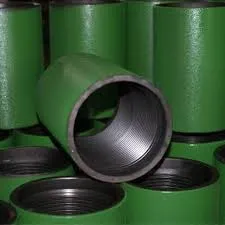- Afrikaans
- Albanian
- Amharic
- Arabic
- Armenian
- Azerbaijani
- Basque
- Belarusian
- Bengali
- Bosnian
- Bulgarian
- Catalan
- Cebuano
- Corsican
- Croatian
- Czech
- Danish
- Dutch
- English
- Esperanto
- Estonian
- Finnish
- French
- Frisian
- Galician
- Georgian
- German
- Greek
- Gujarati
- Haitian Creole
- hausa
- hawaiian
- Hebrew
- Hindi
- Miao
- Hungarian
- Icelandic
- igbo
- Indonesian
- irish
- Italian
- Japanese
- Javanese
- Kannada
- kazakh
- Khmer
- Rwandese
- Korean
- Kurdish
- Kyrgyz
- Lao
- Latin
- Latvian
- Lithuanian
- Luxembourgish
- Macedonian
- Malgashi
- Malay
- Malayalam
- Maltese
- Maori
- Marathi
- Mongolian
- Myanmar
- Nepali
- Norwegian
- Norwegian
- Occitan
- Pashto
- Persian
- Polish
- Portuguese
- Punjabi
- Romanian
- Russian
- Samoan
- Scottish Gaelic
- Serbian
- Sesotho
- Shona
- Sindhi
- Sinhala
- Slovak
- Slovenian
- Somali
- Spanish
- Sundanese
- Swahili
- Swedish
- Tagalog
- Tajik
- Tamil
- Tatar
- Telugu
- Thai
- Turkish
- Turkmen
- Ukrainian
- Urdu
- Uighur
- Uzbek
- Vietnamese
- Welsh
- Bantu
- Yiddish
- Yoruba
- Zulu
api 5ct coupling
Understanding API 5CT Coupling A Comprehensive Overview
API 5CT is a specification developed by the American Petroleum Institute (API) that outlines the standards for the production and use of casing and tubing in the petroleum and natural gas industries. Among the various components associated with API 5CT, coupling plays a crucial role in ensuring the integrity and functionality of the piping systems used in oil and gas extraction. In this article, we'll explore what API 5CT coupling is, its types, applications, manufacturing standards, and the importance of adhering to these guidelines in the oil and gas sector.
What is API 5CT Coupling?
API 5CT coupling is a mechanical device designed to connect two lengths of pipe in a drilling or casing operation, allowing for the efficient transportation of fluids—petroleum, natural gas, or other materials—from the underground reservoir to the surface. This connection is essential as it provides the structural integrity needed to withstand high pressures and harsh environmental conditions encountered during drilling operations.
The coupling must adhere to rigorous standards set forth in the API 5CT specification to ensure reliability and safety in the extraction process. Properly designed and manufactured couplings contribute to minimizing leak risks, enhancing operational efficiency, and prolonging the lifespan of the entire system.
Types of API 5CT Coupling
API 5CT couplings come in various designs and configurations, tailored to meet specific application requirements. Common types include
1. Standard Couplings These are commonly used in well drilling and serve as a simple yet effective means to connect two pipe lengths. They are often manufactured through the use of carbon steel and comply with API specifications for tensile strength and ductility.
2. Premium Couplings Designed for high-performance applications, these couplings offer enhanced sealing capabilities and stress resistance. They are utilized in challenging environments, including deep-water drilling, where external pressures can be exceptionally high.
3. Heavy Wall Couplings These couplings are designed with a thicker wall to withstand substantial pressure and loads, making them ideal for high-stress applications such as large-diameter pipelines.
4. Integral Couplings These are manufactured as part of the pipe itself, providing a continuous join without the need for additional components, thus minimizing the potential for leaks.
Applications of API 5CT Couplings
API 5CT couplings are integral to various applications, primarily in the oil and gas sector. Their utilization includes
- Well Construction Couplings connect casing strings that help maintain well integrity, preventing collapse and allowing for controlled drilling depth.
api 5ct coupling

- Fluid Transportation They ensure efficient fluid flow by connecting pipeline sections for transporting hydrocarbons from the production site to refineries or distribution points.
- Installation of Completion Equipment API 5CT couplings also play a role in connecting tools and equipment used in well completion, enhancing productivity and safety.
Manufacturing Standards
The manufacturing of API 5CT couplings is subject to strict quality assurance protocols. Companies engaged in producing API 5CT compliant equipment must adhere to specific standards, including
- Material Specifications The raw materials used must meet API’s criteria for chemical composition and mechanical properties, ensuring durability and reliability.
- Dimensional Tolerances Couplings must conform to defined dimensions to facilitate proper installation and reduce the risk of operational failure.
- Inspection and Testing Rigorous testing, including pressure tests and non-destructive testing methods (NDT), must be conducted to ensure product quality and compliance with API standards.
Importance of Compliance
Adhering to API 5CT standards for coupling is critical for several reasons
1. Safety Non-compliant couplings can lead to catastrophic failures, resulting in safety hazards for workers and the environment.
2. Operational Efficiency Quality couplings reduce the likelihood of leaks and failures, ensuring smooth operations and minimizing downtime.
3. Regulatory Compliance Many regions require adherence to API standards, making compliance necessary for legal operation.
In conclusion, API 5CT couplings are a fundamental component in oil and gas operations, serving as the connective tissue that supports the entire extraction process. Understanding their importance, types, and manufacturing standards is crucial for industry professionals aiming to ensure safety, efficiency, and compliance in their projects. By prioritizing high-quality couplings, companies can enhance their overall operational success and maintain a strong footing in the competitive energy sector.
-
Tubing Pup Joints: Essential Components for Oil and Gas OperationsNewsJul.10,2025
-
Pup Joints: Essential Components for Reliable Drilling OperationsNewsJul.10,2025
-
Pipe Couplings: Connecting Your World EfficientlyNewsJul.10,2025
-
Mastering Oilfield Operations with Quality Tubing and CasingNewsJul.10,2025
-
High-Quality Casing Couplings for Every NeedNewsJul.10,2025
-
Boost Your Drilling Efficiency with Premium Crossover Tools & Seating NipplesNewsJul.10,2025







